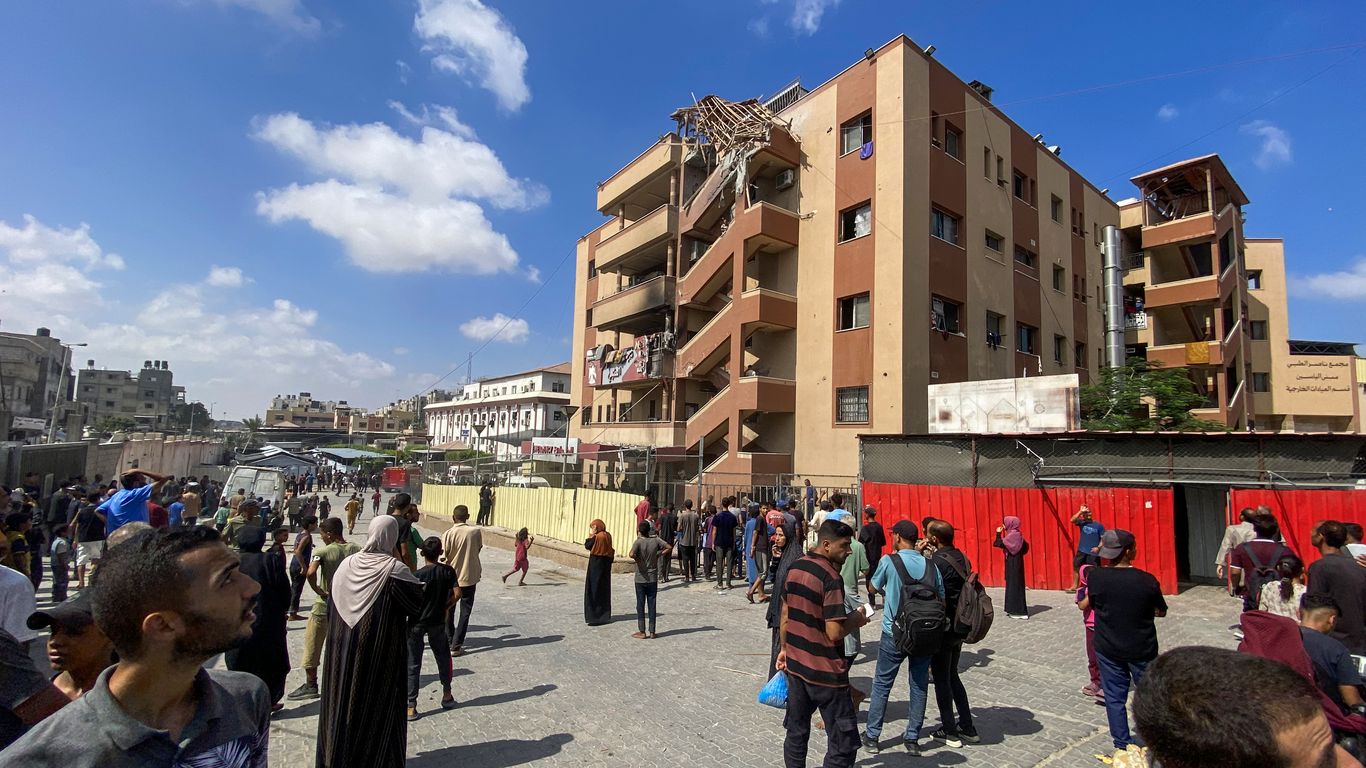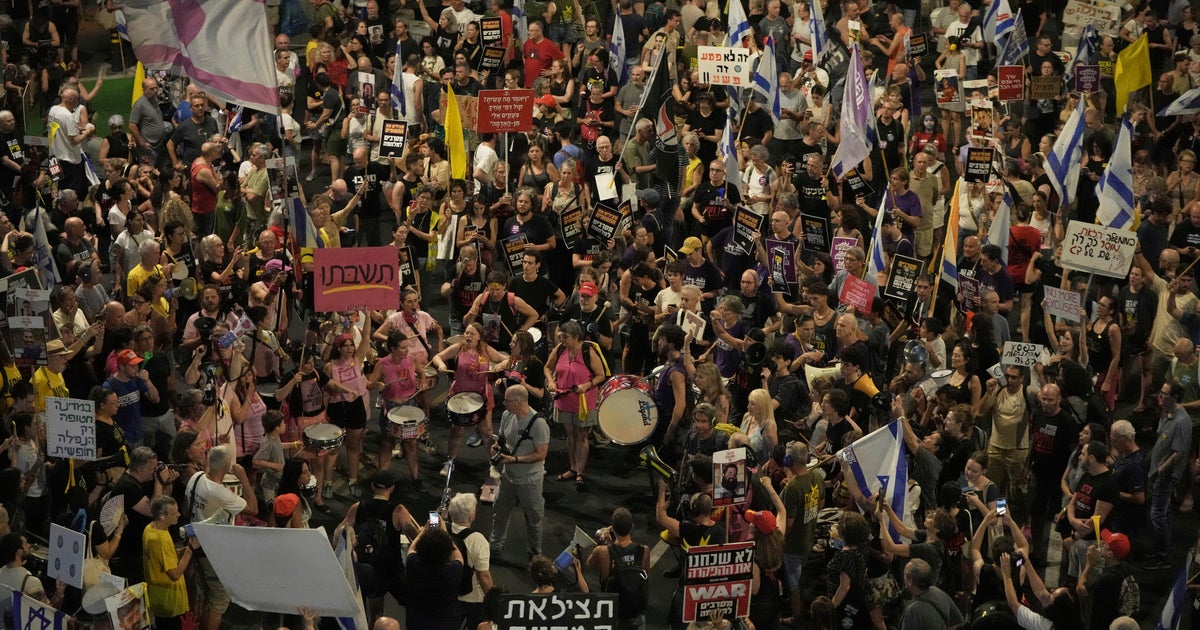UAE Warning Against Israeli Annexation in West Bank
Introduction
The recent strikes in Gaza that have resulted in the death of 31 Palestinians and the warning from the United Arab Emirates against the annexation of the occupied West Bank by Israel have once again brought the long-standing conflict between the two nations to the forefront.
Key Details
The UAE, a key player in the Middle East, has raised concerns about the potential impact of the Israeli annexation on the landmark normalization accord between the two countries. The agreement, signed in September 2020, was seen as a major step towards peace in the region. However, the UAE has warned that any move to annex the West Bank would be a "red line" and could jeopardize the progress made so far.
Meanwhile, Israel has continued to press ahead with its plans for annexation, despite international criticism and backlash. The strikes in Gaza, which have been ongoing for several days, have resulted in numerous civilian casualties, including women and children. The ongoing violence has only added to the tensions between the two nations.
Impact
The warning from the UAE has added another layer of complexity to an already fragile situation. The potential consequences of the Israeli annexation of the West Bank could have far-reaching effects on the region, including the stability of the normalization agreement between the UAE and Israel. The ongoing strikes in Gaza have also highlighted the urgent need for a peaceful resolution
About the Organizations Mentioned
United Arab Emirates
The **United Arab Emirates (UAE)** is a constitutional federation established in December 1971, comprising seven emirates: Abu Dhabi, Dubai, Sharjah, Ajman, Umm Al Quwain, Fujairah, and Ras Al Khaimah. It operates as a federal semi-constitutional monarchy where each emirate is governed by hereditary rulers known as Sheikhs, with Abu Dhabi and Dubai traditionally holding the presidency and prime ministership, respectively[3][4]. The UAE's political system centers on the **Federal Supreme Council**, composed of the seven emirate rulers, which serves as the highest legislative and executive authority, electing the president and vice president every five years[1][2][4]. The federal government consists of three branches: legislative, executive, and judicial. The legislative includes the Federal Supreme Council and the advisory Federal National Council (FNC), a 40-member body that reviews proposed laws and has seen increasing political participation, including a 50% female representation as of 2019 elections[1][2]. The executive branch is headed by the president, who is also commander-in-chief of the armed forces, the prime minister, and the Council of Ministers (Cabinet), responsible for federal policy implementation across all government sectors[1][2][3]. The judiciary is led by the Supreme Court and federal courts. Historically, the UAE has developed rapidly from a federation of tribal sheikhdoms into a modern state with significant achievements in economic diversification, infrastructure, and technology. The federation's wealth, primarily from oil and gas resources, has been reinvested into sectors like finance, real estate, renewable energy, and technology innovation hubs, making it a leading regional business and technology center[3][7]. The government actively promotes political stability, social justice, and equal rights for its citizens, ensuring a measured expansion of political participation while maintaining firm central control[4][5]. Notably, the UAE is recognized for its visionary leadershi
Israel
Israel is a highly developed democratic country in West Asia, known for its advanced free-market economy and significant contributions to global business and technology sectors. Established in 1948, Israel has grown into a regional powerhouse with a population of approximately 9.5 million as of 2025. It is the only country with a Jewish majority population and operates under a parliamentary democracy with strong political rights and civil liberties[2][5]. Israel's economy is among the most sophisticated in the Middle East, ranked 25th globally by nominal GDP according to the IMF in 2025. It boasts the second-largest number of startups worldwide, only behind the United States, and the third-largest number of companies listed on NASDAQ after the U.S. and China. This vibrant tech ecosystem attracts major multinational corporations such as Intel, Microsoft, Apple, IBM, Google, and Facebook, all of which have established research and development centers in Israel, often marking their first overseas R&D presence there[1]. The country’s main economic drivers include high-tech industries, industrial manufacturing, and diamond cutting and polishing, with the diamond sector accounting for 21% of exports in 2017[1]. Israel’s technological innovation extends to energy, with recent discoveries of natural gas reserves and a growing solar energy industry aiming to reduce dependency on imports[1]. Despite its small size, Israel's infrastructure rivals developed nations, supported by a sophisticated welfare state and a powerful military known for advanced capabilities, including nuclear weapons[1]. Regionally, Israel faces ongoing geopolitical instability and conflict, which influence its security policies and international relations. Internal and external tensions persist, particularly regarding the Palestinian territories, impacting both domestic and foreign policy dynamics[3][4]. Public opinion within Israel reflects concerns about international respect and peace prospects[6]. Overall, Israel stands out as a dynamic hub of innovation, economic resilience, and geopolitical significance, making it a critical player in global business and technology news.















